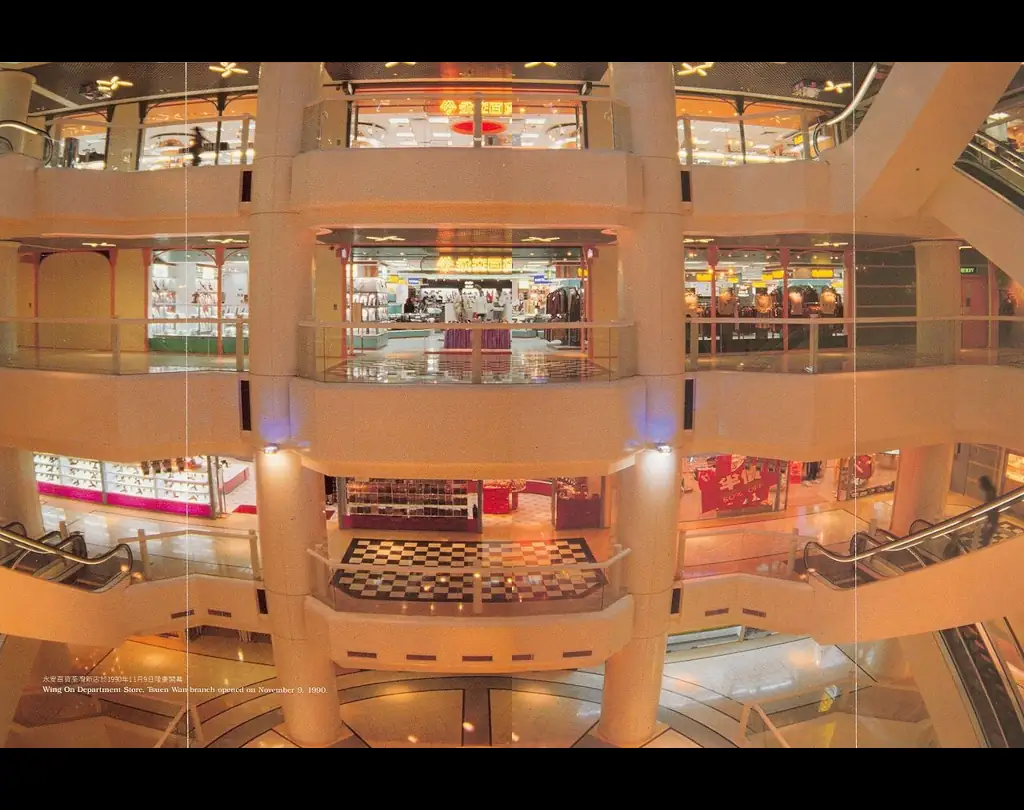Table of Contents
Debt snowballs and finally bursts
According to High Court documents, three companies under Deng Yaobang (son of Deng Chengbo), namely Zhengpin Commercial, Zhengpin Marketing and Zhengsheng, were ordered to be forced into liquidation as early as April this year. The liquidation order for these three companies was like pushing down the first domino, triggering ICBC (Asia) to initiate the debt protection procedure.
It is worth noting that the mortgage structure involved in the taken-over properties is extremely complex. Baisuitang Co., Ltd., which owns Yuepin Resort Hotel, obtained second mortgage financing from ICBC (Asia) in January 2021, while Huayu Investment, to which Seaside Plaza belongs, even involved the superimposed mortgage of second and third mortgages. Senior debt restructuring lawyer Liang Yunxin pointed out: "This multi-layered mortgage structure can still work during periods of loose monetary policy, but it is very easy to trigger a series of defaults when the market conditions reverse."

Seaside Plaza's "death spiral" has depreciated by nearly 40% in nine years
Dubbed a "ghost town" by the market, Tsuen Wan Promenade has witnessed the rise and fall of Hong Kong's retail real estate. Our newspaper checked the Land Registry records and found that this shopping mall at 368 Sha Tsui Road has changed hands three times in the past decade:
2012: New World Development sold to Wang On Group for HK$500 million
2015: Hong An sold to Deng Chengbo family for 820 million yuan
2024: Current valuation drops to 900 million yuan
What is shocking is that although the Deng family tried to transform many times after taking over, they were still unable to get rid of the "dead field" curse. The plan to convert it into a medical center in 2017 was aborted, and the zombie-themed game park introduced in 2018 lasted only half a year. The current vacancy rate of the shopping mall is over 90%, and the entire mall still needs to be lit during the day, with basic monthly operating expenses as high as HK$800,000.
CBRE's latest valuation report shows that the property is currently priced at only HK$2,884 per square foot, a depreciation of HK$371,000 from the purchase price in 2015. If the interest and renovation expenses during the holding period are included, the actual loss may exceed HK$500 million. Stephen Sze-ming, head of research at Savills, said: “The plight of Harbour Square reflects the structural problems of second-tier shopping malls. With the impact of e-commerce and changes in consumption patterns, such properties may become ‘permanent negative assets’.”
The dream of revitalizing Hotel COZI was shattered as the epidemic became the last straw
The fate of another property taken over, Tuen Mun COZi Resort Hotel, was equally bumpy. In 2013, the Deng family purchased the property, which was originally an industrial building, for HK$500 million, and spent HK$300 million on revitalization and renovation. It opened as a four-star hotel in 2019. Unexpectedly, due to the double blow of social movements and the epidemic, the occupancy rate in 2022 remained below 30% for a long time.
Sources in the hotel industry revealed that the management had attempted to transform the hotel into a quarantine hotel, but was unable to obtain a government contract due to Tuen Mun's remote geographical location. The asking price for the project to be put on sale in 2023 is 1.48 billion yuan, which is 85% higher than the total investment of 800 million yuan, and is ridiculed by the market as a "fantasy price". JLL's hotel department managing director, Chan Yiu-cheung, said: "The Tuen Mun area lacks business travelers. Resort hotels rely on cross-border travelers and cannot survive under the slow customs clearance between the mainland and Hong Kong."
Creditors in a dilemma after receivership process started
As the receiver, PricewaterhouseCoopers is now facing a difficult decision. Taking Harbour Plaza as an example, if it is sold at the current price of HK$900 million, after deducting the second and third mortgage debts and legal fees, the Tang family may lose everything. What's more troublesome is that there is a serious backlog of similar properties in the market. According to data from the Rating and Valuation Department, the vacancy rate of retail properties in Hong Kong will reach 12.8% in 2023, a 20-year high.
ICBC (Asia) now has two options: one is to sell at a low price to cash out as soon as possible, but it will have to bear huge losses; the other is to invest funds to renovate the property, but it may fall into a "bottomless pit" type of capital injection. Zhou Zhiwei, a partner at Deloitte who is familiar with the receivership process, said: "It usually takes 18-24 months to dispose of such non-performing assets, during which time the holding costs may eat up the remaining value."
The twilight of the Deng family empire: non-core area properties in trouble
The wave of asset sales by the Deng Chengbo family in recent years is actually a microcosm of the transformation of the Hong Kong real estate market. Statistics show that since 2020, the family has sold more than 60 properties, cashing in about 15 billion yuan, and most of the transaction prices are 30%-50% lower than the book value. However, rapid deleveraging still cannot keep up with the pace of market depreciation. As of the end of 2023, the average valuation of its non-core commercial properties has fallen by 45% from its peak.
Economist Guan Zhaozhao pointed out: "The Deng case exposed two major misjudgments of Hong Kong real estate developers - overestimating the potential for transformation in non-core areas and underestimating the sustainability of the rising interest rate cycle. When the financing cost of the 3% era meets the asset return rate of the 5% era, it is only a matter of time before the capital chain breaks."
The structural dilemma is difficult to resolve. Where is the future of Hong Kong's commercial property market?
This takeover incident has triggered deep reflection in the industry on Hong Kong's commercial property market. With the popularization of remote work and changes in consumption patterns, the demand structure of traditional shopping malls has undergone fundamental changes. Data from Centaline Property Research Department shows that the number of visitors to shopping malls in Hong Kong will drop by 28% in 2023 compared to 2018, but the rental resistance of experiential consumption spaces is three times stronger than that of traditional retail.
Professor Chan Hon Wan of the Department of Building Technology at City University of Hong Kong suggested: “Second-tier shopping malls must undergo ‘spatial gene transformation’, such as transforming into data centres, cold chain warehouses or education hubs. The government also needs to amend town planning regulations to inject new functions into old commercial areas.”
The financial crisis of the Deng family is not only a lesson about excessive leverage of individual companies, but also a footnote to the transformation of Hong Kong's real estate economy. When the golden rule of "Location, Location, Location" encounters the wave of digitalization, how to inject new value into concrete space will become a survival issue that the entire industry must face. The neon lights of the Harbourfront Plaza will eventually light up again, but what they should illuminate should not be just the empty shops, but the new direction for the rebirth of Hong Kong's real estate industry.




